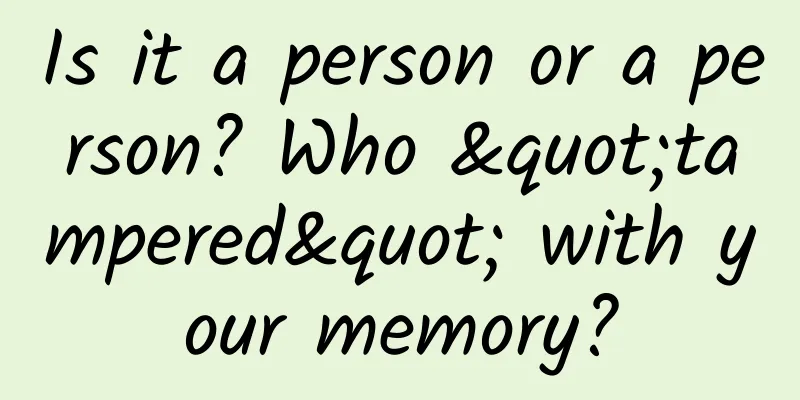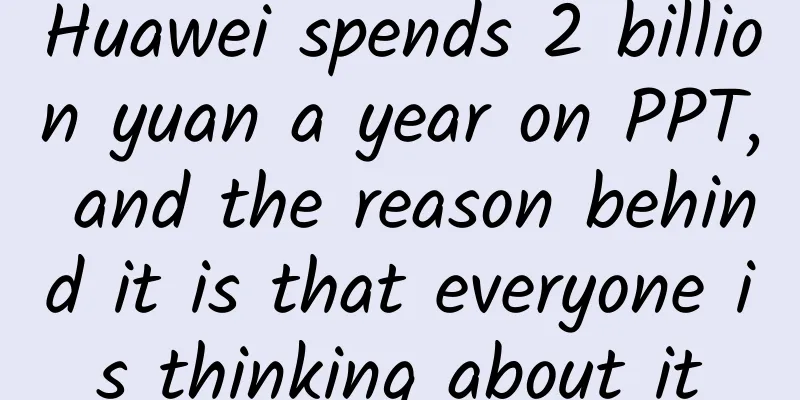Is it a person or a person? Who "tampered" with your memory?

|
Recently, a great debate on memory has been sparked on the Internet. Many netizens firmly believe that what they learned in the Chinese textbooks in their early years was "Heaven will confer great responsibilities on this person", but the textbooks clearly state "Heaven will confer great responsibilities on this person". The People's Education Press also responded that since the inclusion of Mencius's text "Born in Sorrow, Die in Happiness" in 1961, the text in all previous textbooks has always been "Therefore, Heaven will confer great responsibilities on this person" , which puts an end to this doubt. Image source: Junior High School Chinese Language and Literature, 1961, People's Education Press But this can't help but cause netizens to think, why do so many people have collective memory errors? 01 Did I remember it wrong? It’s actually the “Mandela Effect”! In fact, this kind of collective memory error is not a new phenomenon. In psychology, it is called the "Mandela Effect", which refers to the fact that the public's collective memory of history is inconsistent with historical facts. It originated from the death of South African President Mandela in 2013. Many people said that in their memory, he had already died in prison in the 1980s. When the news of Mandela's death was released in 2013, people around the world found that their memories of Mandela were confused. Nelson Holisasa Mandela, photo credit: National Geographic In addition, the Mandela effect is widely seen in many cultures. For example, the lyrics of the song "Love My China" say "fifty-six constellations, fifty-six flowers", but many people think it means "fifty-six nationalities, fifty-six flowers". In Egypt, the mask of the Pharaoh Tutankhamun showed a cobra and the head of a vulture, but many people remember it as one or two snakes; Copyright image, no permission to reprint Many people remember the professional term "Daylight Saving Time" in European and American countries as "day light savings time", but it is actually "day light saving time". The last two words are different... 02 Why does the Mandela effect occur? Wang Xindong, a psychology expert in my country, believes that the Mandela Effect is caused by one person's memory bias and passing it on by word of mouth, which leads to other people who do not know the facts of the incident being misled. Over time, many misled people mistake the news they heard as their own personal experience due to memory bias. In 2021, a research paper published in the foreign academic journal "Psychological Science" used experimental methods to prove and explain the Mandela effect (VME, Visual Mandela Effect). The study consisted of a series of experiments. The researchers first proved that similar pictures do cause the Mandela effect, that is, the subjects still chose the wrong target picture even when they were very sure. Image source: Reference [1] The perceptual experiment method of "MouseView" is similar to a scratch card. A blurred pattern is presented on the computer screen, and it is gradually made clear by smearing it with the mouse. Then, after observing for 5 seconds, the picture just seen is selected from the two pictures. By comparing the features of different pictures, researchers found that the similarity of the patterns and the background stories contained in them is one of the reasons for the Mandela effect. As we know, the information that often causes memory bias is mostly consistent, but differs in details . Image source: Reference [1] But is the Mandela effect only caused by perception and short-term memory? In order to answer this question, the researchers used a series of patterns that are widely familiar to the public and continued to design a familiarity-based drawing recall test. For example, if the subject is more familiar with Pikachu, the subject is asked to draw a Pikachu directly. If the familiarity is low, the subject is asked to look at a Pikachu picture first and then draw a Pikachu. Image source: Reference [1] The researchers analyzed the image data and the results are shown below: Some errors in details can be seen from the arrows. Image source: Reference [1] We can find that compared with the original version, different degrees of memory bias will occur in any task. Researchers believe that this is not only caused by perception and short-term memory, but the Mandela effect also occurs in the recall process of long-term memory. Finally, the researchers concluded that the Mandela effect is unlikely to be explained by a single reason. One explanation is that the information people receive contains some details that are easily confused or ignored . These easily confused or ignored details become the information gap between cognition and facts in the brain. People can only use the existing schematic information in the brain to fill the information gap, which leads to the Mandela effect. Another possible explanation is that people's memory of facts or objects themselves is integrated with the memory of other facts or objects after a period of time, resulting in confusion in the source of memory . As a result, when people retrieve memories, what they retrieve is no longer what they originally remembered, but what they retrieve after integrating information from multiple sources. This leads to memory bias. But it should be noted that the "Mandela Effect" is a collective memory bias, not an individual memory bias . On some issues, if only individual memory is wrong, it cannot be called the "Mandela Effect". It must be a collective memory bias like "God will give great responsibilities to this person" and "Fifty-six nationalities, fifty-six flowers" that can be called the Mandela Effect . In general, the Mandela effect does exist and is a common characteristic of human beings, but the true cause of this memory bias still needs future scientific verification. 03 What can we learn from the Mandela Effect? The Mandela effect is a phenomenon that is difficult for us to avoid, because the brain cannot accurately remember all the facts and details. In today's Internet age, the amount of information every day is very large. In comparison, our attention, memory capacity and memory time are extremely limited. Even our memory is occupied by the so-called "hot list", which is one of the origins of the saying that "the Internet's memory is only 7 seconds." Not only can we not remember so much, but we also tend to forget. Memories are also automatically integrated, corrected and constantly updated by the brain without our awareness, which provides fertile ground for rumors and misinformation. We must pay attention to verification , not only when we respect the original text when quoting classic knowledge, but also when we are more cautious when participating in discussions on events. We must have a questioning attitude and a desire to verify the views of others, avoid spreading rumors, and prevent the Mandela phenomenon. What Mandela phenomena have you encountered? Please leave a message to tell us! References: [1] Prasad, D., & Bainbridge, WA (2021). The Visual Mandela Effect as evidence for shared and specific false memories across people. Psychological Science. [2] Bainbridge, WA (2017). The memorability of people: Intrinsic memorability across transformations of a person's face. Journal of Experimental Psychology: Learning, Memory, and Cognition, 43(5), 706. [3] Bainbridge, WA (2019). Memorability: How what we see influences what we remember. In Psychology of learning and motivation (Vol. 70, pp. 1-27). Academic Press. [4] French, A. (2019). The Mandela Effect and New Memory. Correspondences, 6(2). Author: Chen Yufeng, Master of Psychology, South China Normal University Review | Fan Chunlei Associate Researcher, Institute of Psychology, Chinese Academy of Sciences The cover image and some of the images in this article are from the copyright library Reproduction of image content is not authorized |
>>: Why can’t you find coconut water and coconut flesh in the coconuts you eat?
Recommend
Liyang SEO Training: What methods are needed to achieve a high ranking in website promotion and marketing?
When we usually use a search engine, we will ente...
Kuaishou short video shooting skills
What we are sharing today are the three shooting ...
Creative strategies for placing wedding photography information flow ads!
As my country's economy is performing well ov...
Brand marketing seeding methodology!
Many times, the content that brands put on Xiaoho...
Summary and comparison of the three major free new media channels for increasing APP downloads!
The ultimate goal of new media for APPs is to dri...
How should the landing page be designed during the information flow delivery process?
Before I start this article, I want to ask you a ...
Tips for attracting fans to follow WeChat accounts!
If you ask a new media person, what is the best w...
Note that it’s not the memory! Who is affecting the storage (ROM) performance of the mobile phone?
Just like the main hard disk of new PCs has been ...
When will the Shanghai epidemic end in 2022 and return to normal? Can it be lifted in May? Attached the latest news
On the eve of the May Day holiday, some areas in S...
How to acquire the first 1,000 high-quality seed users at low cost within one month?
You have no money, no resources, and you feel ove...
Apple spends a fortune on iPhone 8, global OLED screen supply may be in short supply
According to The Korea Herald website, Samsung Di...
Can shell-less eggs hatch chicks? It turns out that “cloud chicken farming” is really feasible
Those who have lived in the countryside have all ...
19 product placements: Are you watching "Midnight Diner" or "Ad Diner"?
"To be honest, I didn't expect the crew ...
Drinking milk like this is equivalent to "wasting it", which one does it apply to you?
This article was reviewed by Pa Li Ze, chief phys...









